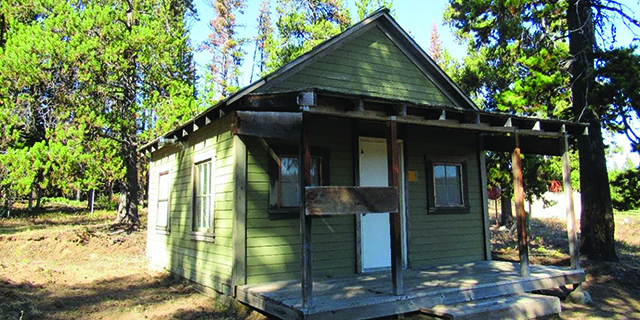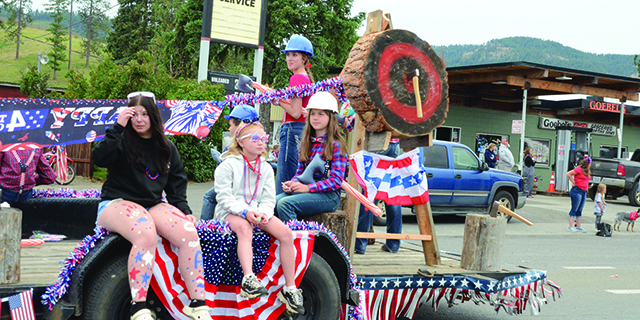Something is different about the weather
Published 4:45 am Wednesday, August 22, 2018
I’ve been swimming in Wallowa Lake this summer — every day since July 4 to brag a little. I’m not a good swimmer or a long swimmer, just a relentless swimmer with arthritis pain that feels much better with water therapy.
But that is not the point here; the point is how warm the water has been and is. Warmer than I can ever remember.
Trending
And while I’m at it, the smoke that has hovered over my swims for the past week reminds me of the smoke last summer that caused Joseph High School to cancel a football game. I can’t even find consensus on where this year’s smoke is coming from — Central Oregon? California? Washington? British Columbia?
I know, I know. Weather changes, and the July and August freezes that killed things in my garden in years past might come again. But I don’t think a September freeze, October snow or cold winter will alter the fact that things are different.
Hot days are hotter, and there are more of them. Fire — exacerbated by a foolish national policy of putting out all fires “before 10 a.m. the next day” after the Big Fire of 1910 and the science of firefighting replaced the millennial wisdom of Indians who burned regularly — is a more frequent and devastating visitor in the region.
Something at Lake Chelan seems to burn every year, and smoke creeps our way from central Oregon and the Columbia River Gorge, site of last year’s big fire and months of lane closure on I-84.
And there is California. In California, Gov. Jerry Brown calls the persistent volley of fires over an extended fire season the “new normal.”
There was another period in recorded history — about 800 AD to 1300 — sometimes called the Medieval Warm Period when worldwide temperatures climbed.
Trending
The impacts were uneven, with Europe receiving the blessings of good weather and water to the extent that England was growing wine grapes and Norway was growing wheat. Europe’s population exploded, and the Norwegians settled in Greenland, Iceland and Newfoundland.
The rest of the world? Not so good. Droughts in California killed the acorns and starved the people; in Central America, the Mayan Civilization collapsed. In the end, Brian Fagan, who wrote a book about it, says that drought is the great enemy, “the silent and insidious killer associated with global warming.”
Basking in warm (if smoky) days and warm water in the Wallowas, one wonders what it all means. We know now that one of the big drivers of the Middle Eastern unrest is drought.
Drought on the land filled the cities in Iraq and Syria and North Africa and grew to unrest and the “Arab Spring.”
Drought in the Middle East and in Africa is fueling the refugee crisis in Europe. And drought in South and Central America and Mexico is driving people from rural lands to their cities and north to the US and Canada.
Few news stories put weather and politics together — but put “drought” and the name of a country in those regions together and see what your computer finds.
Or, closer to home, think about California. Can I sell you a vineyard in Napa Valley? Or a beachfront home — or one in the fire-charred foothills — in Southern California. Or, further south, how about a houseboat on Lake Mead, formed by the giant Hoover Dam and now holding 50 percent of normal water levels.
My guess is that our population, which has shifted to sun in the south over the past decades, is on the verge of migration the other way.
In the east, there is Louisiana sinking into the sea; in Texas and the Southwest into California, drought and fire. Northwest coasts are inviting. But there are red tides somehow tied to warmer waters.
And algae blooms in inland lakes. Still, coastal cities are growing and Portland is exploding.
I’ve done no survey of new people moving here, and casual conversations touch on traffic and crowds, but rarely on weather and fire — although I have heard some vacationers who have landed here fleeing from southern and central Oregon places looking for respite from smoke.
Wallowa Country, even through the haze, is looking better to many. And a warmer Wallowa Lake, which might not bode well for downstream salmon, is a nice place to be on our own 95-degree days.
And if your sister or mother is fighting heat in Phoenix or running from fire in Redding, what are you going to tell her?
Columnist Rich Wandschneider lives in Joseph.









